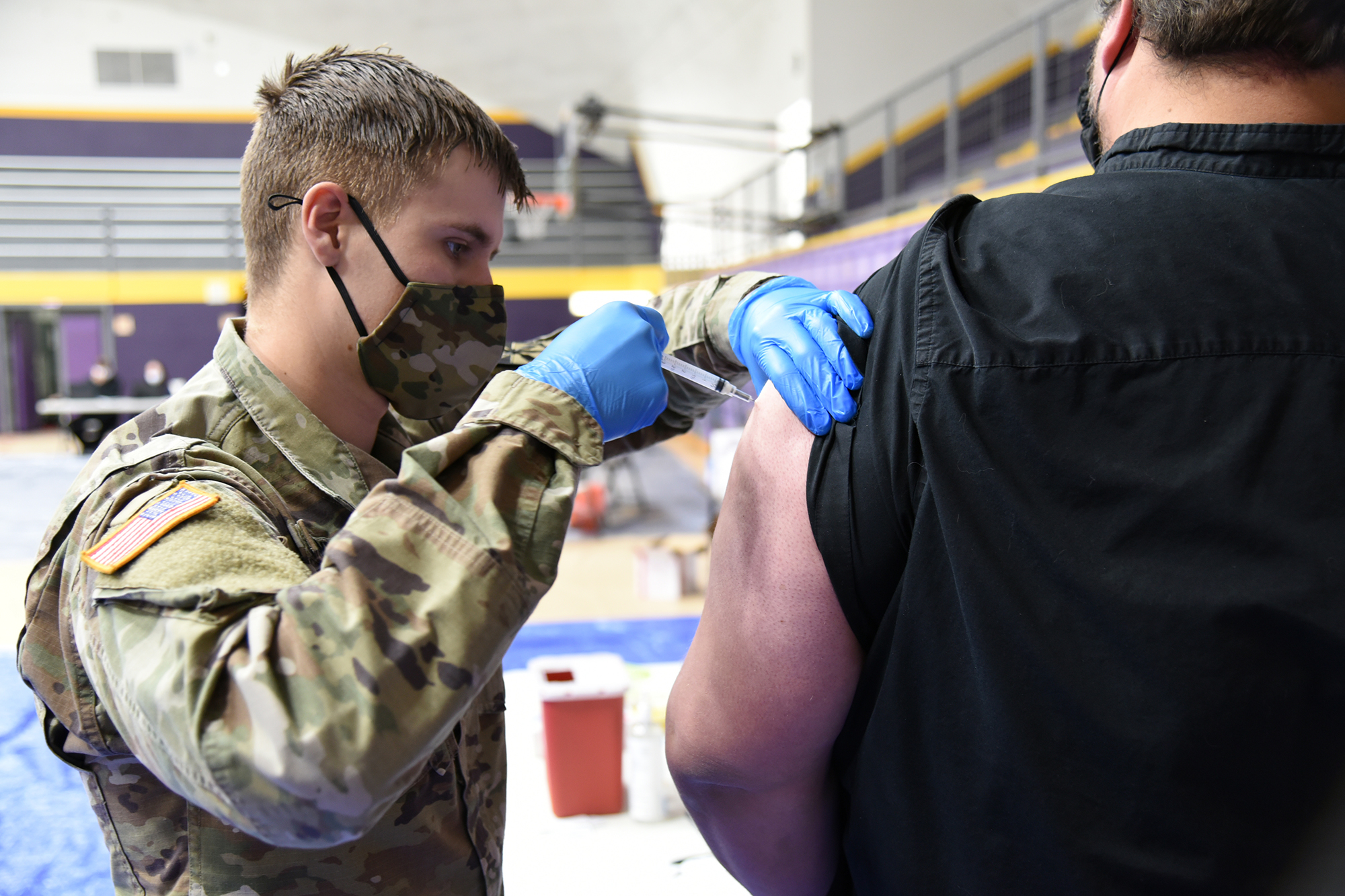The Arizona Department of Health Services said Friday it is expanding its programs for COVID-19 vaccines, adding distribution at pharmacies and at a second state-run site in the East Valley and broadening the number of people eligible for the vaccine.
The expansion of COVID-19 vaccines in Arizona comes as the state has already administered well over 200,000 doses of vaccine, what health department Director Dr. Cara Christ called “an exciting milestone for Arizona.”
It also comes during a week in which the state posted the highest rate of new infections in the nation, according to the Centers for Disease Control and Prevention, with an average of more than 8,800 cases per day over the past seven days.
Christ outlined a broad expansion of the vaccination program, which had delivered 217,716 doses of the two approved COVID-19 vaccines, or about 36% of the more than 600,000 doses that have been delivered to the state.
“Any dose that remains in storage remains a challenge to be addressed, but as a state we are gaining momentum in protecting prioritized Arizonans from COVID-19,” Christ said in a prepared statement this week.
Because of the limited amount of vaccine available so far, the state has prioritized availability, with health care workers and long-term care residents getting first crack at vaccinations, followed by teachers and first responders, then essential workers and adults with high-risk conditions. Eligible groups vary by county, some of which have already worked their way through the highest-priority residents.
Among the changes unveiled Friday by Christ is the addition of a new state-run vaccination site in the East Valley at Phoenix Municipal Stadium on Feb. 1, to complement a 24/7 site that has been operating since Tuesday at the State Farm Stadium in Glendale. More than 16,000 doses had been administered at the State Farm site as of Thursday.
Hours of operation at the Phoenix Municipal Stadium site have not been determined, but people will be able start making appointments there on Tuesday by visiting the patient portal on the Arizona Department of Health Services website.
Christ also said that the state expects to add up to 100 pharmacies across the state that will be able to deliver the vaccine under the CDC’s Retail Pharmacy Program. That program could ultimately have as many as 800 pharmacies with COVID-19 vaccine available in the state.
The state is also relaxing restrictions on recipients in the Phase 1B priority list to include 65-year-olds, who can begin applying Tuesday for an appointment to get vaccinated. That category had previously been limited to those 75 and older, and lowering the age restriction could open vaccine availability to about 750,000 Arizonans.
The two currently approved vaccines – from Pfizer-BioNTech and Moderna – require two doses, which must be administered within weeks of each other to be effective. As of this week, 21,612 Arizonans had received both doses, according to the state health department.
Despite the recent gains, vaccine delivery in the state has not been without its hitches, including some conflicts between state and county software to register for a vaccination.
“It’s very poor planning on the state health department’s part,” said Will Humble, director of the Arizona Public Health Association, of the software problems.
While state officials have hailed Arizona operations to disperse COVID-19 vaccines at the State Farm Stadium site, Humble said the state needs to do a better job of spreading the wealth.
“The vaccine has not gotten out in significant numbers to other decentralized sites,” he said. “At this rate, it’s going to take a lot longer.”
Arizona has delivered more doses of the vaccine than most other states, ranking 18th-highest in terms of total doses delivered, according to a COVID-19 tracker maintained by Bloomberg.
But the state does not fare so well when it comes to the delivery of doses per 100,000 residents. The CDC said Arizona’s rate of 2,708 doses administered per 100,000 residents ranked 45th among states.
Christ on Friday dismissed the CDC numbers, saying they do not reflect the most current data from the state. She said the Bloomberg data is much more timely. But while Bloomberg reported Friday that Arizona had administered a higher rate of 3.19 doses per 100 residents – or 3,190 per 100,000 – that still tied the state for 40th in the nation.
But Dr. Daniel Derksen, director of the Arizona Center for Rural Health at the University of Arizona, said it is important to remember that the state is up against tough odds.
“I think that the logistics of carrying out a vaccination program in a state with a population over 7 million… is challenging,” Derksen said Friday.
“I think the Arizona Department of Health Services has worked very closely with the 15 county health departments around the state to try to do this in a transparent … manner,” he said. “The demand is enormous… we’re hoping that the distribution of vaccines will accelerate as we move forward.”




